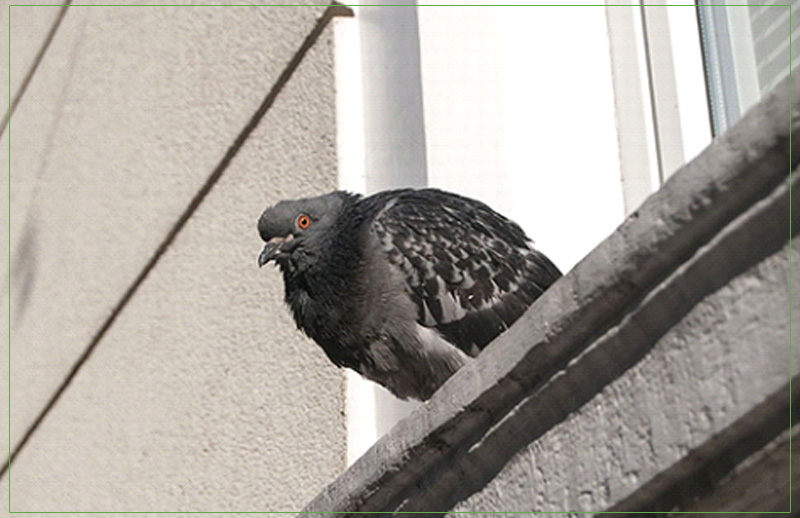Protect your Employees, Customers, and Property
BIRD CONTROL GUIDES
BIRD CONTROL MATTERS
Each year thousands of dollars are spent to clean up after the mess made by urban pest birds. Pest birds such as pigeons, crows and gulls love to use building surfaces to land, roost and build their nests. Bird feces is acidic and will quickly erode building materials; carrying any of 60 transmittable diseases. To prevent the spread of disease and prevent property damage, it is important to install some sort of bird control system before the bird problem gets out of control.
When planning a bird control solution for your customers, it is important to be sure you know what types of birds are problematic, what they are doing and how many there are. There are many bird control products on the market, but the most effective for landing, roosting and nesting birds are those that physically keep the bird away.
For flat surfaces such as parapet walls, roof peaks and edges, and building signs; it is suggested to use products such as bird spikes or electric bird track. For large areas that birds are congregating in such as big box stores, airplane hangars and under canopies; it is best to use bird netting to exclude the pest birds from these areas.
HERE ARE SOME OF THE MAIN REASONS WHY BIRD CONTROL IS IMPORTANT:
The longer birds can nest or roost in an unwanted area; the harder it will be to get them to leave. It’s important to take a proactive approach when dealing with pest birds. In the long run, it can save you time and money.
HEALTH RISK
Birds, bird droppings and nesting materials can carry 60 different diseases and ectoparasites that can be passed to humans and animals. If dried bird droppings are found near ventilation systems, they can travel through buildings potentially infecting inhabitants with compromised immune systems.
INVENTORY DAMAGE
Droppings can damage products and contaminate production lines. Birds can often be found nesting or perching on rafters in warehouses and storage facilities. Bird droppings present in such areas may violate health codes.
POOR IMAGE
Bird droppings and nests are an unattractive feature for homes and businesses. Birds on a ledge or sign, or droppings covering a sidewalk may send a message to visitors that the business is careless.
COST OF CLEANUP
Businesses that clean up after birds on a daily or weekly basis are wasting money and exposing employees to health risks. Some businesses spend thousands of dollars each year on the regular cleanup of bird droppings. Installing bird control products can save businesses time and money.
PROPERTY AND EQUIPMENT DAMAGE
Bird droppings may render machinery or equipment inoperable or may require regular clean up so operators are not exposed. Droppings are highly acidic and can corrode buildings materials and stain fabrics. These will need restoration or complete replacement once damaged.
HEALTH CODE VIOLATIONS
Pest bird droppings found in food processing plants, restaurants, storage facilities or other areas may violate health codes resulting in fines, legal action or closures. Birds are considered a pest and need the same type of consideration as say roaches or rats.
WORK STOPPAGES
Employees should not work in areas that are unsafe due to an accumulation of bird droppings. Bird droppings carry disease and affect those with weakened immune systems. If an employee becomes sick due to an ignored bird problem, the business will most likely be liable.
SLIP AND FALL RISK
Bird droppings can be slippery. If a customer or employee falls they may sue the building owner or property manager. A man in New York City was awarded $6 million dollars in 2006 from the city after slipping on pigeon droppings in a subway.
CLOGGED DRAINS
Droppings and nesting materials regularly clog drains and gutters. This can cause other problems on roofs and other areas by damming water and creating the potential of flooding.













